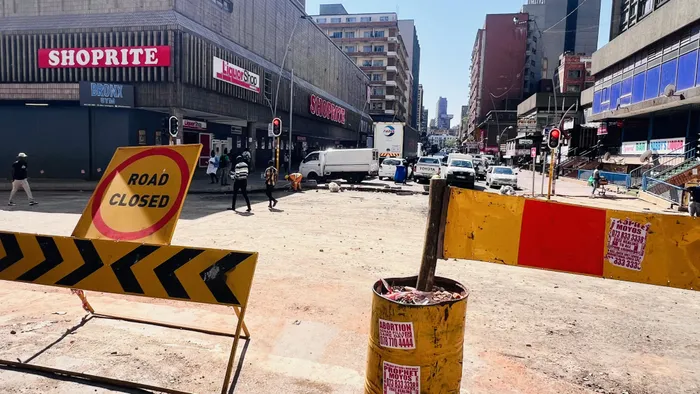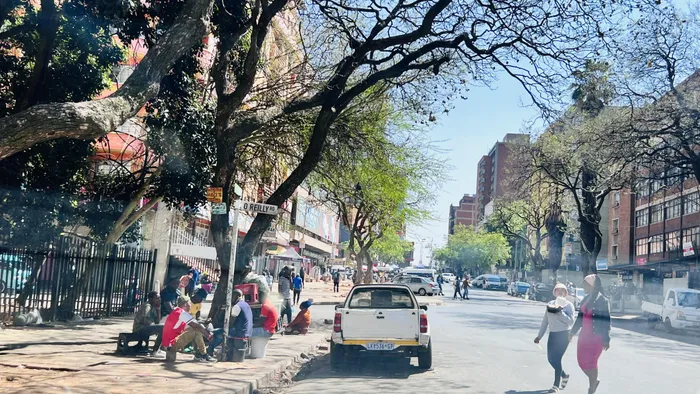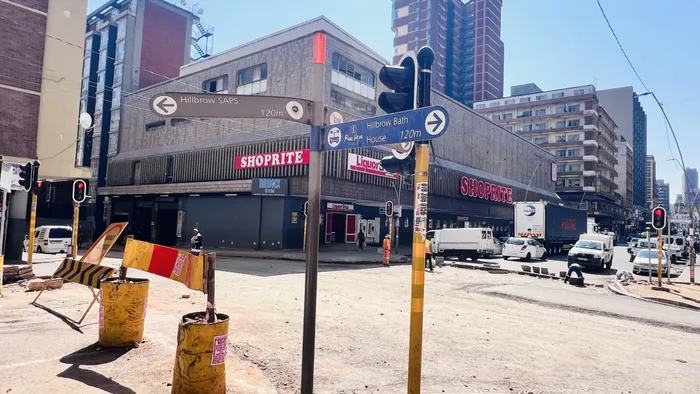
Johannesburg's G20 Preparations: Cleaning Up the City While Safety Concerns Persist
Image: Thabo Makwakwa
As the City of Johannesburg accelerates cleanup efforts in preparation for the highly anticipated G20 leaders’ summit scheduled for November, residents remain wary about persistent safety issues in the city, famously known as the “City of Gold.”
An Independent Online (IOL) city preparedness assessment on Tuesday highlighted noticeable improvements in some of Johannesburg’s notorious crime hotspots, including the Hillbrow area.
Streets continue to be cleared of litter, and potholes are fixed in some areas to improve the city's appearance for international visitors.
However, the recent clean-up follows months of unrelenting media scrutiny exposing a city in decay, three decades after the end of apartheid.
President Cyril Ramaphosa launched a sharp rebuke earlier in March this year aimed at Johannesburg’s municipal leadership for allowing infrastructure and public services to collapse.
“The city must be fixed, and quickly,” Ramaphosa insisted, emphasising the importance of making Johannesburg safe and presentable for the summit.
Despite visible progress in Hillbrow's cleanliness, many residents voiced concerns about the area's safety and social issues.
Adam Ndlovu, a street vendor, described parts of the district as dangerous,
“The Mimosa International on Clarendon Street is practically a drive-in drug market.”
He said: “It is not safe at all. Police don’t even frequent the place often, and it’s a no-go area at night.”
Further observations by IOL at busy transport hubs such as the Wanderers taxi rank near Johannesburg Park Station revealed a mixed picture.
While police presence was apparent on the Wanderers taxi rank, some streets like O’Reilly in Hillbrow showed little enforcement despite being hotspots for drug-related arrests.
Addressing safety efforts in nearby suburbs, Parkmore Residents Association Manager Lorie Klein said that residents in their nearby suburbs were taking proactive measures in their area.
“We have security providers 24/7 with five permanent reaction vehicles and four foot/bicycle patrollers in Parkmore,” Klein explained.
However, she lamented that cleanliness in busier, high-traffic areas in the city remained challenging due to inadequate refuse bins, irregular cleaning, and littering.
“People walk past bins and just throw their belongings on the floor or in plants,” she said.
She expressed skepticism about the city’s long-term commitment to cleaning the city.
“The City gets a bit of a ‘clean up, shake up’ before big events, and a week or two later, it’s business as usual. No consequences, no law enforcement.”
Democratic Alliance (DA) Johannesburg leader Belinda Kayser criticised Johannesburg’s safety approach as reactive rather than enduring.

Despite visible progress in Hillbrow's cleanliness, many residents voiced concerns about the area's safety and social issues.
Image: Thabo Makwakwa
“Johannesburg cannot be safe only when global leaders visit,” she said.
“Hillbrow and the CBD need permanent, visible policing, not cosmetic fixes.”
Kayser called for stronger resourcing of Metro Police, technology-driven solutions, and genuine partnerships between SAPS, Metro Police, and private security firms.
She also singled out the Wanderers and MTN Taxi Ranks as examples of negligence, blaming the ANC-led administration for inconsistent cleaning and enforcement.
City of Johannesburg spokesperson Nthatisi Modingoane defended the city’s strategy, noting that the Johannesburg Metropolitan Police Department (JMPD) employs the "broken window" approach to policing - tackling minor offences to prevent larger crimes.

Calls for stronger resourcing of Metro Police, technology-driven solutions, and genuine partnerships between SAPS and Metro Police.
Image: Thabo Makwakwa
“JMPD officers patrol the inner city day and night, focusing on foot patrols and high-visibility presence to deter criminal activity,” said Modingoane.
Collaboration with SAPS, Community Policing Forums, and private companies is central to this strategy.
Modingoane acknowledged ongoing challenges at taxi ranks, including illegal dumping, hijacked buildings, and insufficient refuse bins due to staff shortages and unregulated informal trading.
To combat these problems, the city has introduced a street-by-street, block-by-block cleaning system and increased the number of bins.
As the countdown to the G20 summit continues, Johannesburg finds itself at a crossroads, balancing much-needed urban rehabilitation with the urgent demand for lasting safety and security improvements that residents hope will endure beyond the event.
thabo.makwakwa@inl.co.za
IOL Politics
Related Topics: